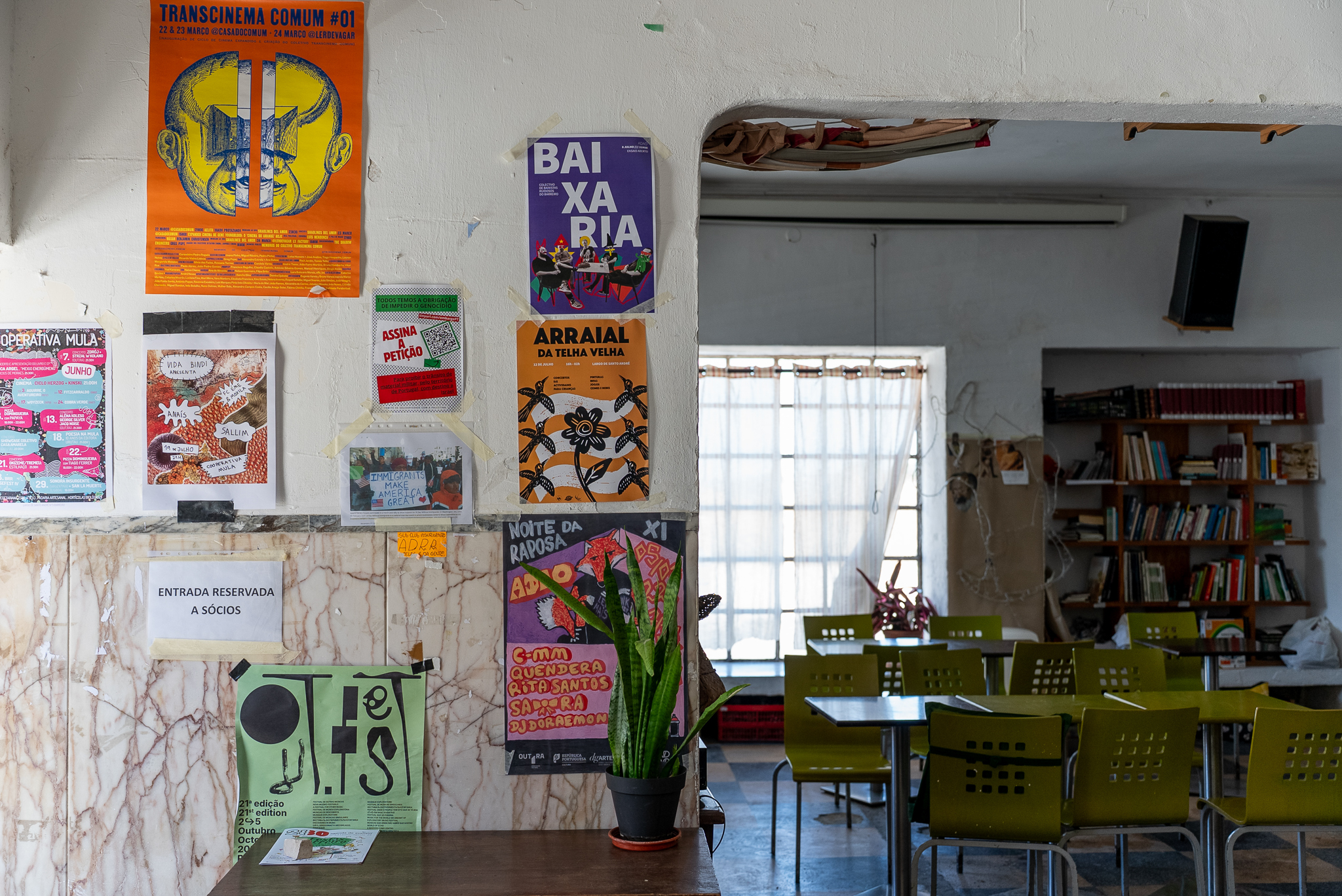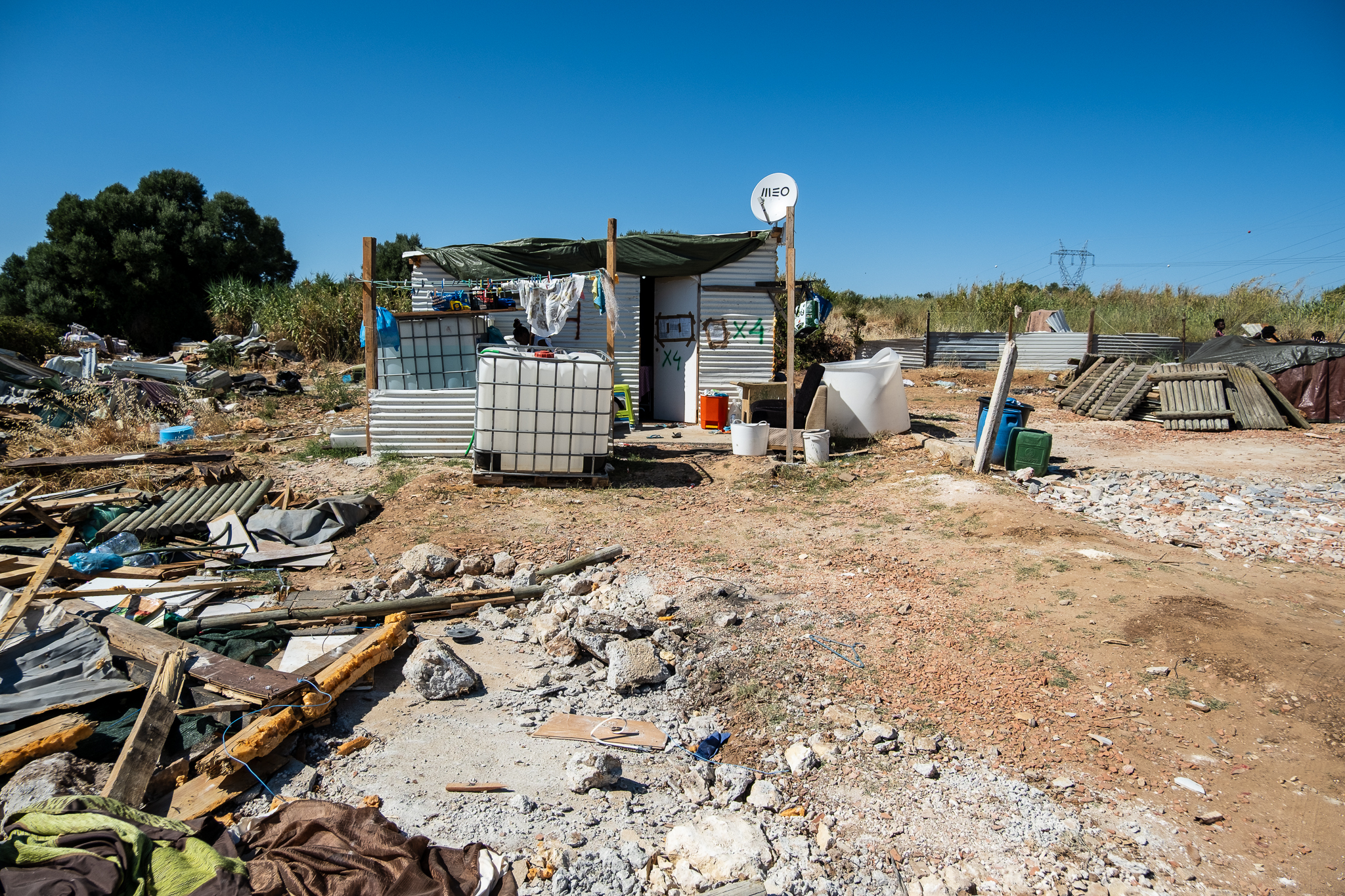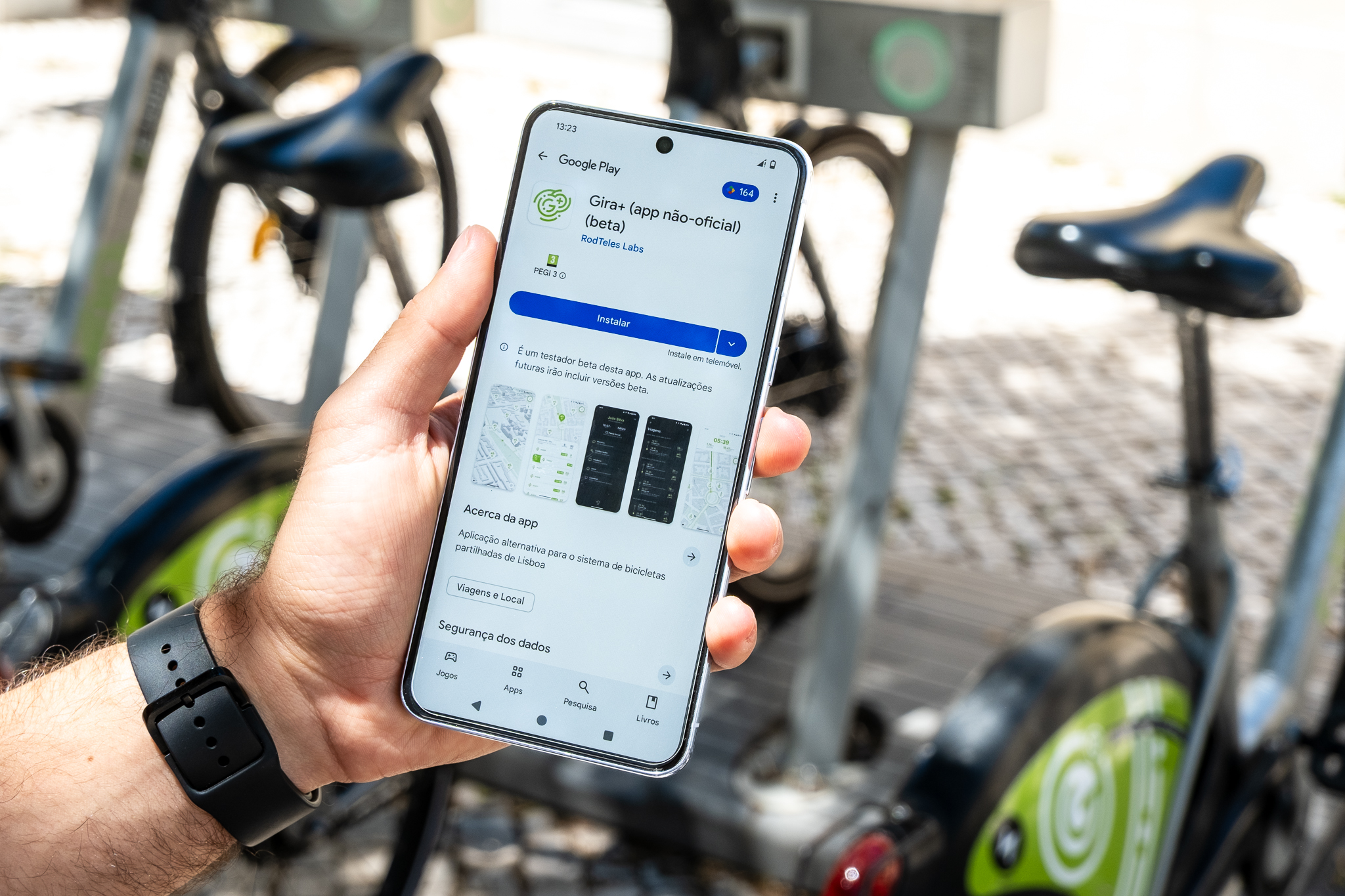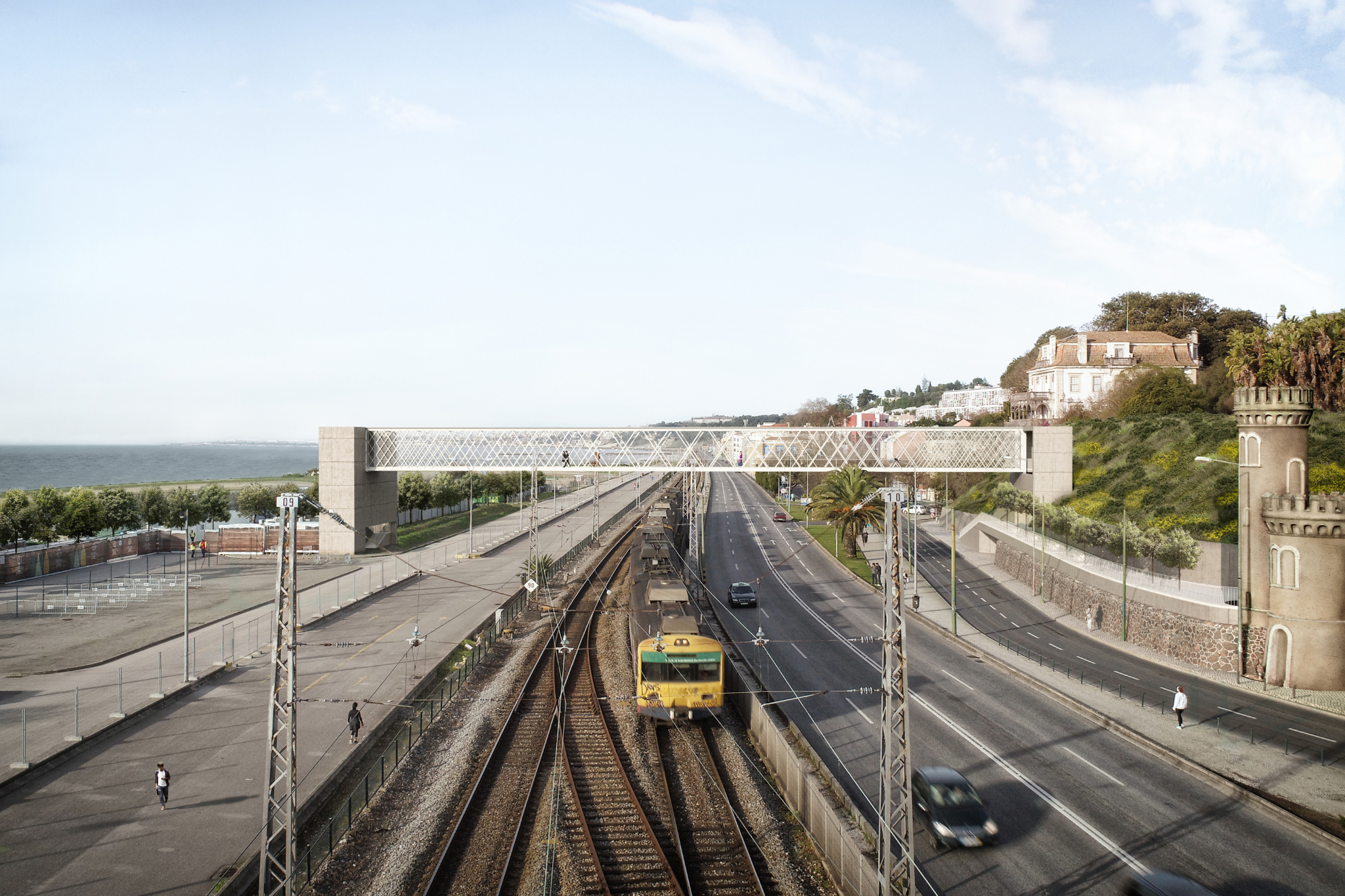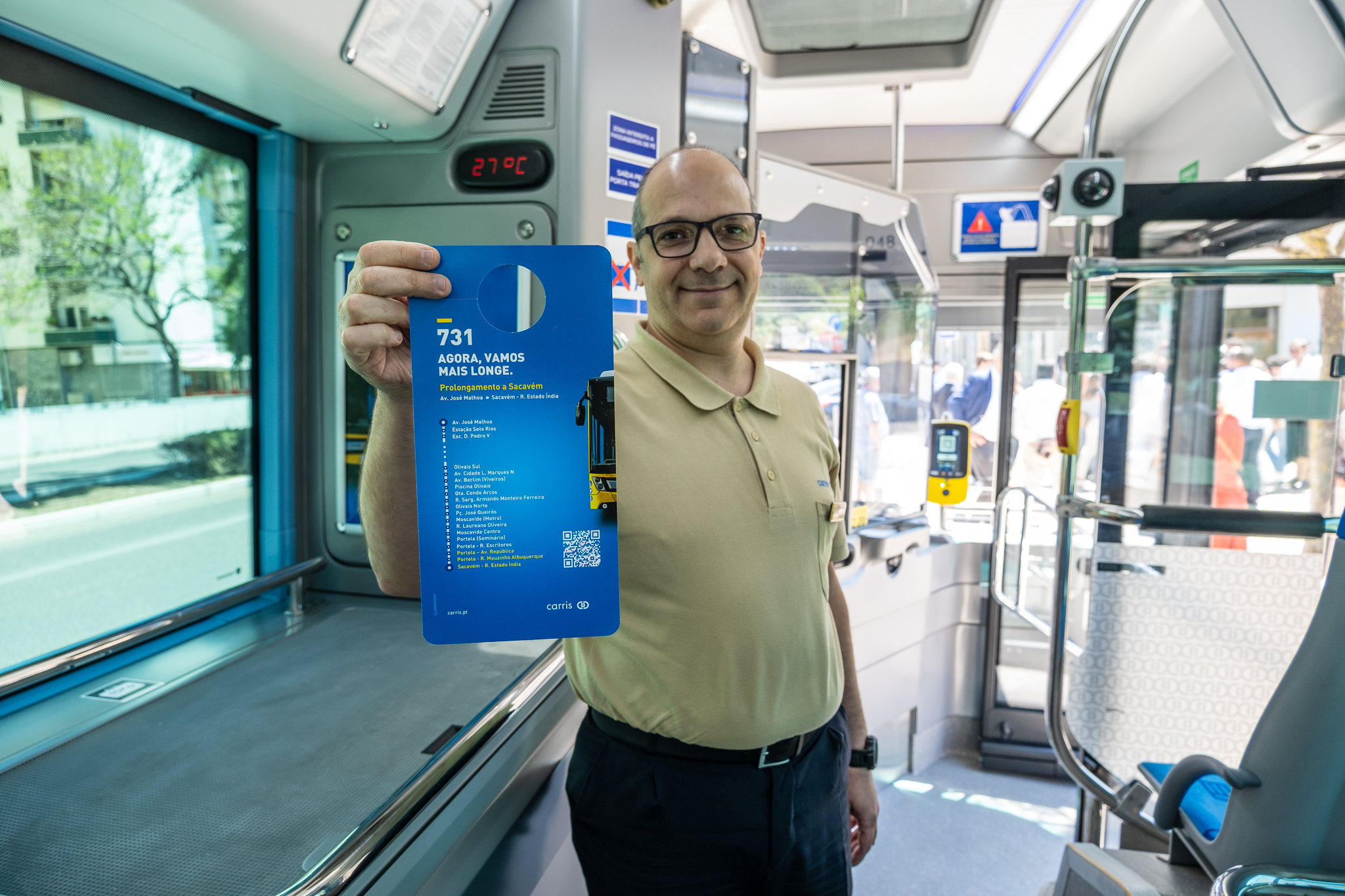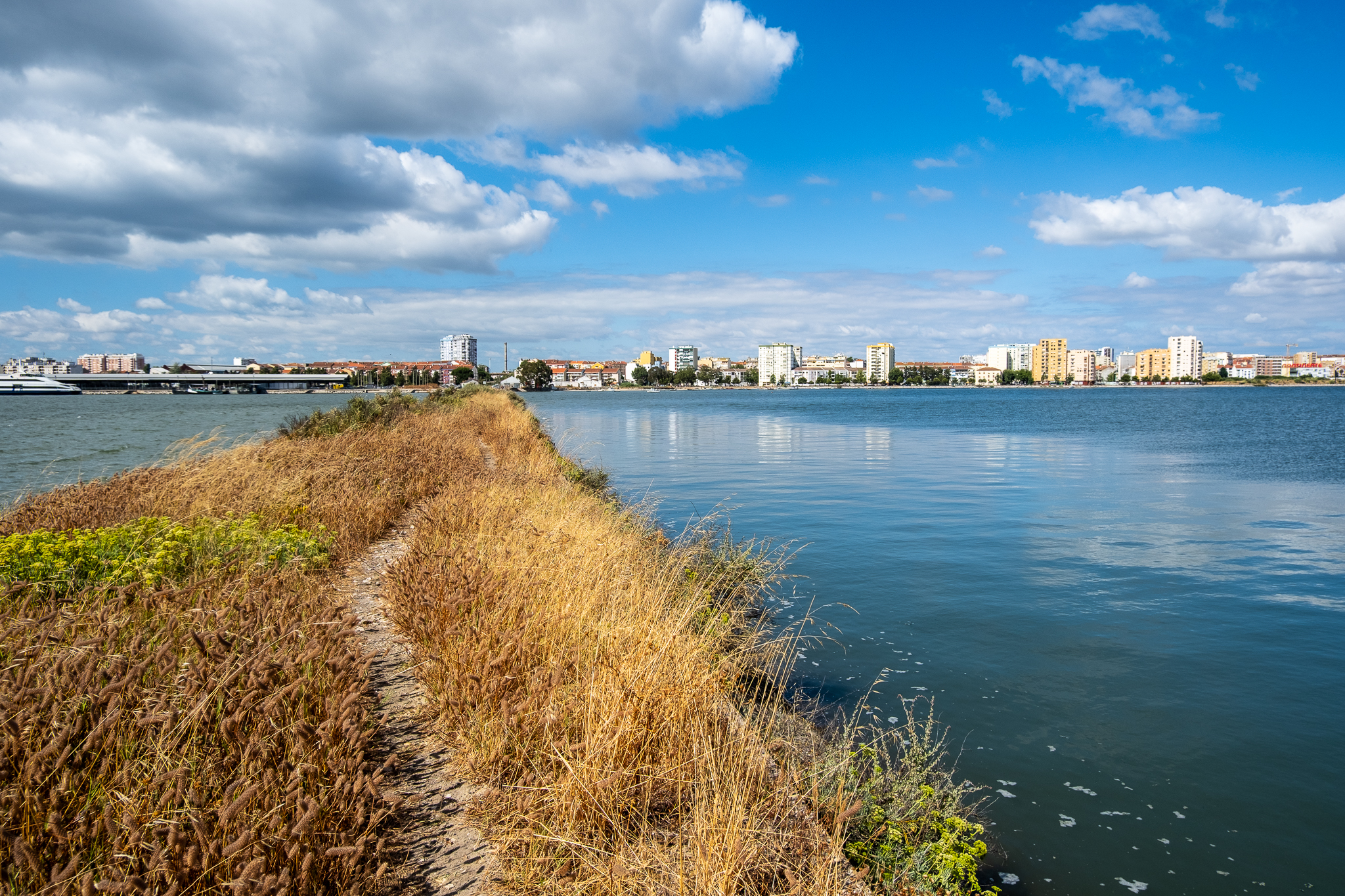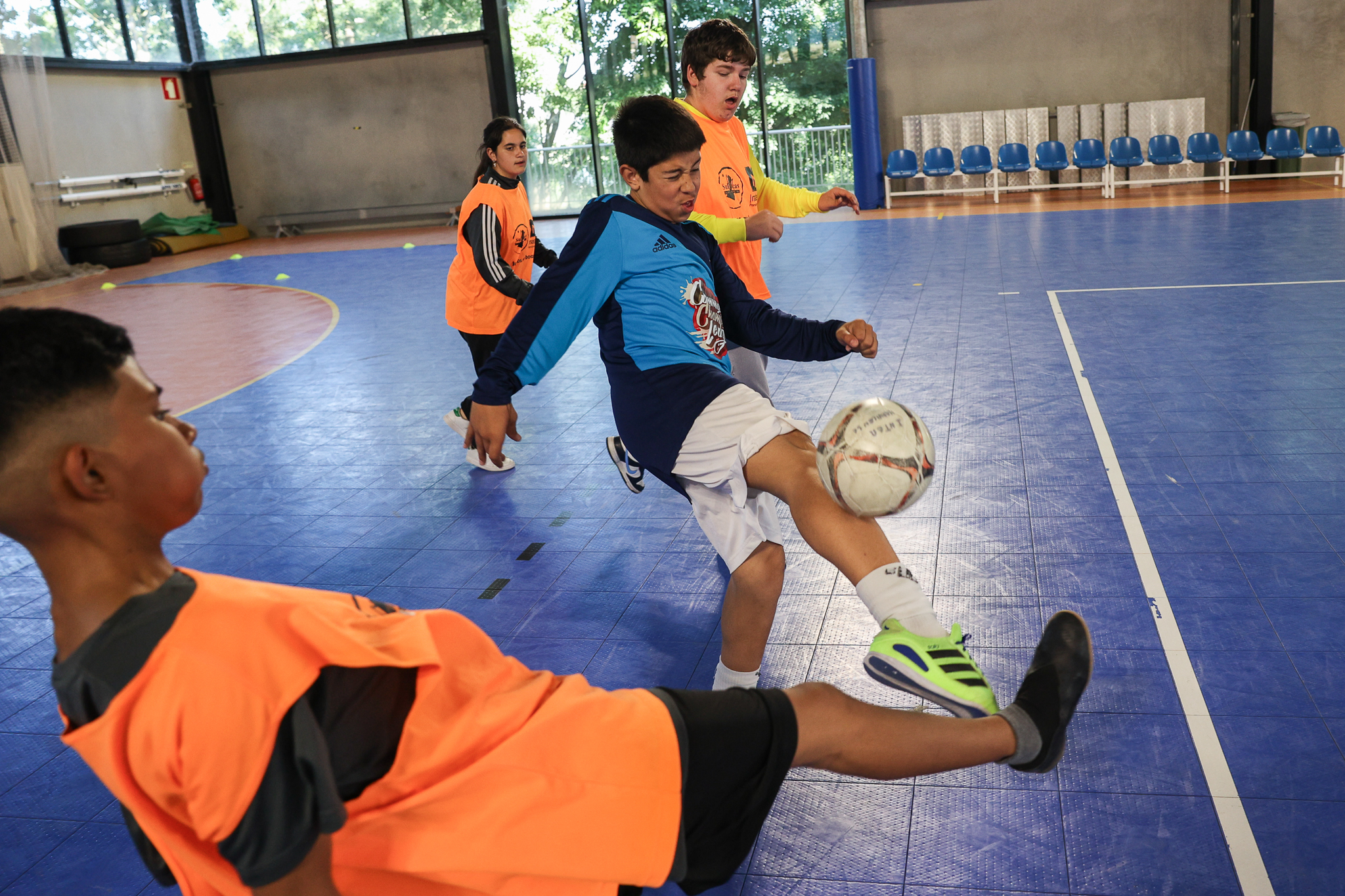The Bicycle Trains are already present in 25 schools in the city of Lisbon and, in this last school year, involved 240 children and 42 "train drivers". Paulo Chakour was one of them.

One morning, Paul saw a Bicycle Train passing in front of his house in Olivais. And at that moment he wanted to know more about what that was, so he asked one of the monitors ("machinists"). Paulo and his family had arrived from Brazil not so long ago at that time. "I stopped that train and said 'well, what is that?' I wanted my children to be able to participate. Then they told me 'ah, you go to the Chamber's website and register'"he says. "By chance, my children's school didn't have a Train yet and I enrolled them in the school next door. Then we talked and managed to expand this Train to both schools and I started participating with my children.“
Today, Paulo Chakour is also one of the 42 "machinists" of the Bicycle Trains in Lisbon. It is part of the cooperative Bicycling, which has been operationalizing this project for the Lisbon City Council since 2019. This past school year, 2022/23, the program covered 240 children and 25 schools, with a total of 362 circulations - there is at least one weekly circulation per school.

The Bicycle Train "driven" by Paul was one of the most crowded. It was held on Wednesdays between the Galinheiras neighborhood, in the parish of Santa Clara, and the EB1 Quinta dos FradesThe train is located near Alameda das Linhas de Torres, in the parish of Lumiar. On the day we accompanied Paulo and his train, at the end of June and of the school year, it carried a dozen passengers. "We have 16 children enrolled and a part of these children participate"he explains. "And, if I'm not mistaken, it may be the longest train. It is a train of almost five kilometers and has two parks on the route, Parque Oeste and Quinta das Conchas, which we cross and which are an extra motivation for children to participate. But we also don't let it pass in pieces that are streets."
On the other hand, says Paul, "I realized that our Train has two realities within the same Train, because we leave a region that is a little more remote from the city and come towards a region that is not central but has a higher economic power. And then we end up in an area where there are parks, there are bike lanes, there is access for bicycles, but we start the route in an area where the street pavement is a little more potholed, where the garbage collection itself seems to me not to be the same…“.

As the main "driver" and coordinator of this Bike Train line, Paulo's responsibility does not end on Wednesday, when he leaves to take the little ones to school. The day before, for example, he has to make the call to find out which children will participate the next day; it is the parents who indicate these presences through a WhatsApp group of communication with the Bicicultura team and the Chamber:
Good morning! Tomorrow we have a Bike Train ☀️ I would like to ask you to report your child's attendance, indicating the child's name and the stop where they will be on the train Please also feel free to ask any questions you may have. Thank you and happy cycling! 🚲
- message from Paulo on WhatsApp group
Paulo then prepares an attendance sheet with the passengers planned and the stops they will enter. There may be last-minute cancellations, which is also why the WhatsApp channel is used. Being the main "driver", Paulo is the one who follows the lead of the Train, checking all the stops and making sure all the children get on the group of bikes - always keeping an eye on WhatsApp for any eventuality and on the passenger list so no one is left behind. The responsibility does not fall entirely on you; Paulo is accompanied by assistant "drivers" who help with the driving and dynamics of the Train. Together, all the adult monitors (there is a ratio of one monitor for every four children, determined by Bicicultura) ensure that each Bicycle Train runs as a cohesive and safe group, with particular attention to moments of sharing the road with motor vehicles and to intersections in general.

The monitors or "drivers" try to help the children with the bike, giving them tips on how to ride the bike along the route, correcting inappropriate behavior and also providing help with mechanics or adjusting the height of the saddle, for example. All Bicicultura "drivers" are experienced in urban cycling but still receive specific training for driving the Trains, as group riding presents its own challenges.
"In a way, I was already a 'train driver' before I met Bicicultura because I have my own 'train' when I take my two children to school. I think that brought me an ease to understand the dynamics of a Train and what are the concerns of accompanying a child riding a bicycle on the streets of Lisbon", notes Paulo. “But I think that, still, a Convoy is very different from a parent taking the kids to school, because it allows for the integration of cyclists into a group, which brings more safety to ride on the streets, and that also allows for social interaction between people. Trains promote that in children, which is not something you see happening naturally."

Paulo, like the rest of Bicicultura's drivers, is paid for this work - it's a way of ensuring the project's commitment and stability. But it's not the pay that makes him get up early every Wednesday to take one or two dozen children to school. "I knew there was this remuneration, but my impression is that everyone would still participate if it was a voluntary activity. That's a bit what happened to me at the beginning, I wanted to help the project"he says. As the children's entries are before conventional working hours, the "train drivers" manage to combine the two activities. Paulo is a consultant in the industrial area and works remotely for Brazil; he has been in Lisbon for a year and a half and says that the Bicycle Trains are one of the motivations that keeps him in the Portuguese capital. "I lived in São Paulo for 40 years. It's a city that's a little more difficult to have this dynamic of children occupying the street."
"The project has several purposes besides involving the children. It also promotes that parents can use the bicycle more, maybe parents who have never come with their children by bicycle to school begin to see that they can do it and that they can use bicycles on other days. And I think that whole purpose motivates us, the train drivers, to continue to participate and try to bring in more kids who can participate"describes. "And it ends up being a statement project. I believe that in the medium to long term, if we have all the parents bringing the children by bike to school, this project wouldn't even be necessary. The parents themselves can organize themselves, bring the children. But for now this is not the culture of the city. So, I think that a project of affirmation that promotes a culture and in the future we can change, in a certain way, the face of the city." He adds: "In addition, for me, who works with engineering, construction and industrial assembly projects, the possibility of being involved with an initiative that has a more human side is also motivating."

Entering at nine o'clock at EB1 Quinta dos Frades, it means the line starts shortly after eight at the starting point in Galinheiras. For Paulo and the other monitors, it means waking up at seven in the morning or even earlier. "For me it is also an opportunity to cycle, because it is eight kilometers"he says. "I chose not to use the electric bike precisely so I could get a workout in the morning." And after the eight kilometers of commuting and before the five of the Train, there's usually time for a coffee and a bit of socializing. "I already wake up early because of my children, so that's my dynamic. I always end up going a little earlier to a café that is close to the first stop. And other train drivers end up going to the café too. We meet there and this socialization between the 'train drivers' is very nice."
Paulo Chakour will continue to take children to school in the next school year, when the Bicycle Trains return, and EB1 Quinta dos Frades should continue to have this program. Bicicultura, which already has Bicycle Trains projects in other cities in the Lisbon metropolitan area (as Almada) and also throughout the country, it has 42 "machinists" in Lisbon alone and always has an application form open. "We are looking for people who cycle in the city, who are able to promote interaction with children and who are willing to learn and perform the safety techniques for which we provide training.", points out Luís Vieira, Bicicultura cooperator and coordinator of the Bicycle Trains/CicloExpresses project at national level. "We have tried to have a diverse team, seeking, among other things, to move towards gender parity, in order to promote representativeness and highlight the role of the bicycle as an aggregating element of the community."


